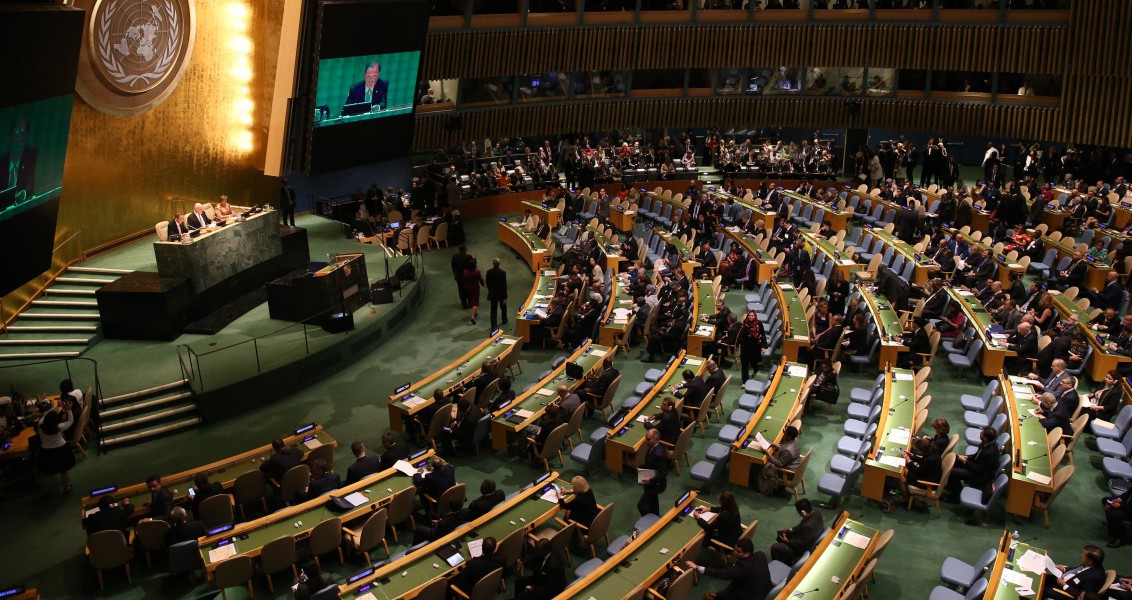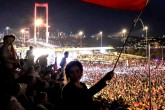Every September, the leaders of countries from around the world convene in New York City to attend the U.N General Assembly. In less than two weeks, all leaders meet their counterparts in bilateral and multilateral settings to discuss current agenda issues. The U.N. was established after World War II as a forum for world leaders to resolve conflicts and cooperate effectively to provide peace and stability in the international system. However, today the organization has lost most of the functions that the founding fathers hoped to accomplish by forming such an organization.
The organization has failed to respond to the most critical political, social and security challenges of the 21st century mostly due to the failure to reform itself following significant, fast changes in the international system. One of its most frequently cited problems is the veto power that the five permanent members of the U.N. acquired during the formation of the organization. Since then, much of the ineffectiveness and failure of the U.N. has stemmed from this structural problem.
The countries that won World War II used their victory as a bargaining chip during the formation of the U.N. and have since taken the U.N. and its system hostage with their veto power. The self-interest of these five countries and their unwillingness to share this privilege with other nations has generated significant deadlocks in the system. Today, this issue is the biggest obstacle to the legitimacy of the U.N. system. Especially after seeing the organization’s inability to find a solution for humanitarian crises and conflicts in recent years, the need for reform is again on the agenda.
One of the most vocal voices for reform has been the Turkish government, particularly President Recep Tayyip Erdoğan. In his latest speech to the U.N. General Assembly, President Erdoğan once more emphasized the need for such a transformation of the U.N.system. One of the most vivid causes for the need for reform is the failure of the system to stop terrible atrocities by regime forces. President Erdoğan pointed to the Syrian conflict as an example of the failure of the international system.
For the last five years, due to its deadlock in the U.N. Security Council, the U.N. has failed to even adopt an arms embargo against the regime. Although the U.S. ambassador to the U.N. said that the U.S. is “disgusted” by some countries vetoing resolutions concerning Syria and later emphasized that Syrian inaction is a “stain” on the U.N. Security Council, the U.S. administration has opposed reform of the system. By enumerating the number of dead, wounded and refugees as a result of the war, President Erdoğan demonstrated this colossal failure. He reiterated the need for reform of the Security Council.
The international community together with the U.N. has also failed to provide aid for refugees escaping the conflict in Syria. One of the most critical areas in this field was the condition of the refugees. As President Erdoğan mentioned, Turkey has spent $12.5 billion, with contributions by civil society organizations and municipalities increasing this to $25 billion. However, despite repeated calls by the Turkish government, neither the international community nor the U.N. has provided sufficient support to enable the Turkish government to handle this crisis. According to President Erdoğan, the U.N. has only provided $525 million. This failure is critical considering new threats to human security in the world.
While the U.N. General Assembly has convened five times since the beginning of the crises, it has failed to provide any solutions for the problem in Syria or alleviate the conditions of the refugees and internally displaced people. The failure of the U.N. in Syria demonstrates that it will be hard to depend on this organization with regard to future conflicts and humanitarian problems. The conflict in Syria is one of the most significant indicators of this failure. Now, President Erdoğan has again called on members of this organization, including the U.N. Security Council, to reform its structure to prepare the organization for the future. Absent reform, the organization will lose its meaning and credibility for the international community, bringing new initiatives from around the world to find solutions for common problems.
[Daily Sabah, September 24, 2016]
In this article
- Foreign Policy
- Opinion
- 2016
- Bashar Al Assad
- Daily Sabah
- Middle East
- Recep Tayyip Erdoğan
- Syria
- Syrian Civil War
- Syrian Conflict
- Syrian Crisis
- The President of the Republic of Türkiye
- Turkish President
- U.N.
- United Nations (UN)
- United Nations General Assembly (UNGA)
- United Nations Security Council (UNSC)
- United States (US)



